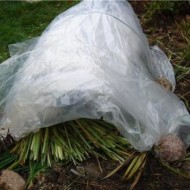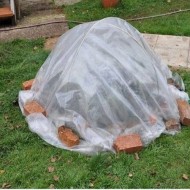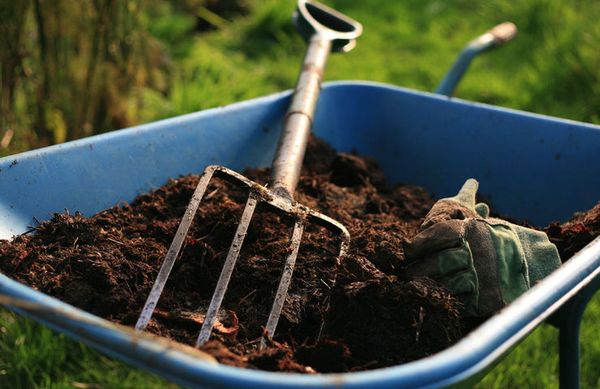How to cover lilies for the winter to preserve the root system
Content
Autumn pruning
Pruning is the key to preparing a lily for winter. However, the recommendations that the procedure should be carried out immediately after flowering are incorrect. Pruning and preparing lilies for winter must be done at a certain period, so the plant must be given time. After the petals fall off on their own, seed pods will appear in their place, which should be removed. But only them - a cardinal "cleansing" is carried out later.
Until about mid-September, the lily stores the necessary amount of nutrients to survive the winter safely. Therefore, the deprivation of its stems and shoots during this period greatly complicates the preparation. The end of the month is perfect for “rejuvenating” the garden beauty. As a rule, all shoots are removed, leaving only a stem up to 10 cm long.
Video "How to cover lilies for the winter"
In this video, you will learn how to properly prepare lilies for the winter period.
Top dressing
After the procedure, the root system must be fertilized. This will allow the plant to be more resistant to cold, moisture, and lack of sunlight. A top dressing containing potassium salt and superphosphate is added under the stem, and the flower itself is sprayed with a solution of copper sulfate. The latter prevents fungal diseases, the risk of which increases during the rainy season.
It is important to remember that fertilizers containing nitrogen are not acceptable. This is due to the fact that nitrogen activates the vegetative processes in the plant, which slow down at the time of cold weather. Thus, the lily "wakes up" at the wrong time, and this can lead to her death.
Hide tips
To answer the question of how to cover a lily for the winter, you need to know the characteristics of the plant. Frost-resistant crops thrive under a layer of snow, without the need for substantial cover.
These include:
- Daurian;
- asian;
- marchagon;
- royal.
For warm wintering of these species, spruce branches, peat, sawdust or dry foliage will be enough. The material is distributed around the stem, protecting the root zone from freezing. The timing of the shelter is also important. There is no specific period, you need to be guided by the weather: when the low temperatures are finally established, you can prepare a shelter.
Digging and subsequent storage
Delicate lilies are unstable against frost even in the middle lane and the Moscow region, where winters are relatively mild. Therefore, their bulbs are advised to dig up.
These plants include:
- oriental hybrids;
- American;
- tubular.
The bulb removed from the ground must be carefully inspected for rotten areas. If there are any, they are removed. The root is washed with water, soaked in a manganese solution for 30 minutes and dried well. Then the bulbs are sorted. The large ones will be used for forcing, while the small ones have yet to be grown. The bulbs are placed in any resealable container, covered with moist moss on top.
There are several storage options:
- Cellar.This method is only appropriate if the room temperature does not drop below zero. The bottom of the container is filled with a thick layer of wet sand. They also cover the onions.
- Balcony. For convenience, a thermometer is installed in the box where the bulbs are stored, which allows you to monitor the temperature. The method is suitable for those situations when the frost outside the window is not too severe. Otherwise, the lily root system may freeze and die.
- Refrigerators compartment. Alternative wintering place for a garden plant. The container with tubers is placed in a separate compartment of the refrigerator. Parallel storage of fruits in the chamber is unacceptable for lilies. The ethylene released during this process is harmful to the plant.
Mistakes for beginner florists
The most common mistakes novice gardeners make in caring for a lily in the fall are:
- ignoring fertilizers and dressing;
- early pruning of the plant or its complete absence;
- non-digging of bulbs of delicate varieties of lilies;
- incorrect or untimely insulation;
- untimely removal of the insulation.
Buying bulbs in winter
If the lily bulbs fell into your hands during the winter period, you should not bring them into the house. The best places for storage would be a cellar, garage or barn. The main thing is that the air temperature in the room does not fall below zero. It is better to plant frost-resistant crops immediately in the ground. They can be insulated with peat, sawdust or dry cardboard.
It is important to take care of protection from rodents, which can attack the tubers with the onset of spring.
Lily is considered to be one of the most beautiful plants. During flowering, it is unpretentious and is able to decorate even the most abandoned corner of the garden. But after the growing season, the garden beauty needs special care. Its main aspect is the adaptation of the plant to the cold season. Subject to all the rules, the lily will delight the eye with its enchanting appearance and fragrant aroma for several years.





